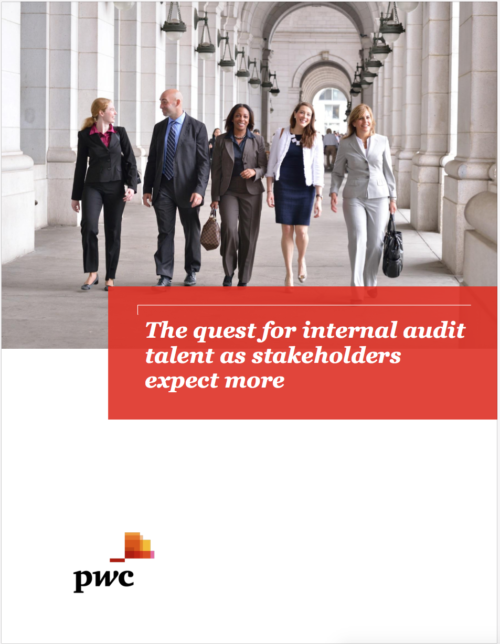Tighter AML Rules for Australia
Australia is considering tightening its anti-money laundering regulations to include real estate agents and precious stone dealers, sources said, following red flags from a global watchdog over potential illicit cash entering the country.
While tighter regulations would not be aimed at inflows from any one country, Australian authorities are reacting following a surge of cash from wealthy Chinese buyers looking for a safe haven away from the market turmoil of their home markets.
Property has long been on Chinese buyers’ radar, but in recent months they have been snapping up Australia’s rare pink diamonds, part of an unprecedented capital outflow from China that is rattling Beijing.”
The Egmont Group
“The increasing actions of terrorists and terrorist organizations such as ISIL, al-Qaida and their respective affiliates, as demonstrated by recent terrorist acts in Indonesia, Egypt, France, Lebanon, Mali, Saudi Arabia, Turkey and the United States, and the proliferation of Foreign Terrorist Fighters (FTFs), poses serious threats to security and international financial stability.
In response, the Egmont Group members have cooperated to produce an operational analysis of the financing for ISIL FTFs. The project identified challenges and highlighted successes to information sharing in combating terrorist financing.”
Credit Suisse
“Lawyers for a Georgian billionaire accused Credit Suisse Group AG of money laundering as they step up their fight with the Swiss bank over its handling of a former wealth manager who allegedly made unauthorized transactions to cover up trading losses.
Bidzina Ivanishvili’s lawyers ‘filed the criminal complaint with Geneva prosecutors, alleging that the bank failed to install adequate procedures to prevent money laundering, allowing employees to act with complete freedom. The complaint is based on hearings, a review of the evidence as well as information received from MROS, Switzerland’s Money-Laundering Reporting Office,’ the lawyers wrote.
The complaint is at least the second to target Credit Suisse in a widening scandal that has put the spotlight on its wealth management unit and what it knew about allegations made by Ivanishvili and two other Russian clients about improper trading dating back to 2007. The Geneva banker — who can’t be named under Swiss law — has been charged with fraud and criminal mismanagement by Geneva prosecutors and is in detention in the Swiss canton as the Frenchman is considered a flight risk to France.”
Islamic State
“Isil is making millions of dollars for its war chest by playing foreign currency markets under the noses of bank chiefs.
The terror group is earning up to $20m (£14.29m) a month by funnelling dollars looted from banks during its takeover of the Iraqi city of Mosul into legitimate currency markets in the Middle East.
It then makes huge returns on currency speculation, which are then wired back via unsuspecting financial authorities in Iraq and Jordan.”
Panama Papers
“The Panama Papers revealed one of the most scrutinized secrets on how corrupt, high-profile people from around the world — from politicians to the ultra rich — use tax havens to hide the source and true owners of their wealth.
What is the leak?
More than 11.5 million documents from the database of Mossack Fonseca (the world’s fourth-largest offshore law firm) were obtained from an anonymous source and shared with the German newspaper Süddeutsche Zeitung.”
U.S. Regulatory Violations, Now With Higher Penalties
“Starting August 1, violations of financial regulations will come with higher civil money penalties (CMPs). The CMP increases are in response to the Federal Civil Penalties Inflation Adjustment Improvements Act of 2015 (the Act). The Act requires Executive Branch and independent agencies (Agencies) to make annual adjustments for inflation to CMP dollar amounts, as well as an initial ‘catch-up’ adjustment based on a formula set forth in the Act. Although the Act was part of the contentious budget bill that was passed on October 30, 2015 (and that avoided a government shutdown), the Act did not receive much independent coverage, and the increases may be unexpected to businesses that are potentially subject to the increased penalties.
Because the Act is applicable to all Agencies, interim final rules that implement it, including the ‘catch-up’ adjustments, have been issued by all the federal financial regulators, including the Financial Crimes Enforcement Network (FinCEN), the Office of the Comptroller of the Currency (OCC), the Federal Deposit Insurance Corporation (FDIC), the U.S. Commodity Futures Trading Commission and the U.S. Securities and Exchange Commission. Some of the ‘catch-up’ adjustments are significant. For example, FinCEN, the OCC and the FDIC had not increased some of their CMP amounts for more than a decade, and in some cases, for several decades. Consequently, some of their CMP amounts have doubled or nearly doubled. CMP amounts that were adjusted more recently are subject to a more modest increase under the Act and the various interim final rules.
In light of the overall recent heightened regulatory interest in regulatory violations, particularly bank secrecy act and anti-money laundering violations, it is possible that regulatory agencies and self-regulatory organizations that are not subject to the Act but are notably active in enforcement (e.g., the Financial Industry Regulatory Authority and state agencies, such as the New York State Department of Financial Services) will make similar or proportional upward adjustments to their penalties.”
DFS Issues Final Anti-Terrorism Transaction Monitoring and Filtering Program Regulation
“Financial Services Superintendent Maria T. Vullo announced that the Department of Financial Services (DFS) has adopted a risk-based anti-terrorism and anti-money laundering regulation that requires regulated institutions to maintain programs to monitor and filter transactions for potential Bank Secrecy Act (BSA) and anti-money laundering (AML) violations and prevent transactions with sanctioned entities. The final regulation requires regulated institutions annually to submit a board resolution or senior officer compliance finding confirming steps taken to ascertain compliance with the regulation.
‘Financial institutions doing business in New York must do everything they can to help stem the tide of illegal financial transactions that fund terrorist activity,’ said Financial Services Superintendent Maria T. Vullo. ‘It is time to close the compliance gaps in our financial regulatory framework to shut down money laundering operations and eliminate potential channels that can be exploited by global terrorist networks and other criminal enterprises.’
The risk-based rule adopted by DFS today takes into consideration comments that were submitted by the financial services industry and others during the extended comment period for the previously-proposed regulation, which ended March 31, 2016.”
E.U.’s Proposed Anti-Money Laundering Directive
“Last July, the European Commission published a draft directive proposing to extend anti-money laundering (AML) regulation to both virtual currency exchange services and custodial wallet providers. The draft suggests that many Bitcoin companies operating within the European Union will need to apply know-your-customer (KYC) types of checks on their users, to be enforced by 2017.
From the perspective of the European Commission, virtual currencies present a problem as they allow money to circulate easily, and it’s difficult to know who’s transacting with whom. To address this, the E.U. wants to set up checkpoints: Custodian wallet providers and exchange services would be required to monitor transactions on their platform and report suspicious activity.”
U.S. Loses Trillions In Mispricing Trade Goods
“Trillions of dollars may be missing from U.S. government coffers due to widespread corporate tax evasion and criminal money laundering strategies.
IU College of Business professor John Zdanowicz conducted an analysis of 12 years’ worth of U.S. Customs data and found that abnormally priced goods imported and exported by U.S. companies are masking complex tax avoidance strategies that have cost the U.S. government more than $2.3 trillion in revenue from 2003 to 2014. ‘Criminals and tax evaders have discovered that laundering money through the banking system is dangerous, especially with the new financial institution reporting requirements under the Patriot Act and other banking regulations,’ Zdanowicz said. ‘However, moving money through international trade can be virtually undetectable.'”
Money Laundering And Wall Street
“Wall Street executives are freaking out under the strain of widespread money fraud. More compliance cops, more technology and expanded budgets are needed, they warn, to help stem the flood of dirty money laundered internationally, according to a new survey.
In a field paying anywhere from $75,000 to $250,000 in annual salary for qualified compliance pros, staffing is one of the biggest challenges for firms today.”
FinCEN Proposes Tougher Requirements
“To ensure consistent Bank Secrecy Act (BSA) coverage across the banking industry, FinCEN is proposing to require banks lacking a Federal functional regulator to establish and implement Anti-Money Laundering Programs. FinCEN also is proposing to extend Customer Identification Programs (CIP) requirements and beneficial ownership requirements consistent with the recently implemented Customer Due Diligence amendments to those banks not already subject to these requirements.
Banks without a Federal functional regulator (FinCEN estimates that they number 740 nationwide) are currently covered by many other BSA obligations, including filing suspicious activity reports and currency transaction reports. FinCEN anticipates that banks lacking a Federal functional regulator will be able to leverage existing policies, procedures, and internal controls required by other statutory and regulatory requirements to fulfill the proposed obligations.”
U.K. Introduces Criminal Finances Bill
“New legislation designed to tackle accusations that the U.K. is a haven for dirty money would give British law enforcement officers sweeping new powers to tackle money laundering and corruption, as well as recover criminal proceeds.
The highlight of the proposed Criminal Finances Bill will allow law enforcement agencies to force suspected criminals to prove the source of their wealth, the U.K. government said Thursday. Under the so-called ‘unexplained wealth orders,’ those unable to explain where their wealth came from would risk having their assets seized, including lucrative property.
The bill is subject to parliamentary approval before coming into force.”
Swiss Banks In Money Laundering “Red Zone”
“Roughly 15 Swiss banks are in a ‘red zone’ of lenders particularly exposed to money-laundering risks, the head of Swiss banking watchdog FINMA said in a newspaper interview published recently.
Swiss federal prosecutors last week said that they have opened criminal proceedings against Zurich-based Falcon Private Bank for alleged failure to prevent suspected money laundering linked to Malaysia’s scandal-tainted 1MDB fund.
‘We have introduced a warning system in relation to money-laundering risks,’ FINMA Chief Executive Mark Branson said in an interview with Swiss newspaper SonntagsZeitung. ‘Roughly 15 banks are in the red zone here. That means they are particularly exposed.'”
Tax Havens Under Attack
“Ireland, accused of being a tax haven for multinationals such as Apple to pay nearly zero tax on the bulk of its profits earned outside the United States, finds itself with a new adversary in the global fight against unfair tax practices — Brazil.
As of October 1, Brazil will add Ireland to its blacklist of tax havens, where it will join Panama and Monaco. As a result, any company based in Ireland will have to pay a 25 percent tax rate instead of 15 percent on its Brazilian earnings. The G20 and some other nations have agreed to new rules, including the exchange of information between tax authorities. The new rules are already in place and have started being phased this year.”
FATF Training And Research Institute (Trein)
“September 20 was the opening ceremony of the FATF Training and Research Institute (TREIN) took place in Busan, Korea, during which FATF Executive Secretary David Lewis delivered opening remarks.
The TREIN institute meets the need for training and capacity-building in the implementation of anti-money laundering and counter-terrorist financing (AML/CFT) measures. Through the institute’s facilities, government officials from all member countries of the FATF Global Network will have access to a comprehensive training and research program. Low-capacity countries or countries with a less mature AML/CFT regime will be able to benefit greatly from this additional expertise and research. The institute will also provide a venue for the training of government officials involved in the assessments, or mutual evaluations, of countries’ implementation of effective AML/CFT measures. Assessors, reviewers and officials whose country is being reviewed will learn more about the way the FATF and the FATF-Style Regional Bodies (FSRBs) measure the effectiveness of an AML/CFT regime.
Mossack Fonseca Enforcement Action
“The Government of the British Virgin Islands has today announced that the independent regulator, the Financial Services Commission (FSC), has issued an enforcement action against Mossack Fonseca & Co (B.V.I) Limited that sees the firm fined $440,000 for its contravention of numerous sections of the Anti-Money Laundering and Terrorist Financing Code of Practice and BVI Regulatory Code.
The fine, which is the largest ever issued by the Financial Services Commission, relates specifically to failures in record keeping, risk assessment and adequate updating of customer due diligence. The full details of the enforcement action are available on the BVI FSC website.”
Credit Suisse’s €109.5M Settlement
“Credit Suisse has agreed to pay 109.5 million euros ($119 million) in taxes and penalties to settle allegations by Italian authorities that it helped clients transfer undeclared funds offshore, the Swiss bank said on Friday. Milan prosecutors had been investigating since 2014 an alleged fraudulent system which was used to transfer up to 14 billion euros ($15.2 billion) to offshore accounts, mainly through the use of insurance policies. Some 13,000 clients are allegedly involved.
Credit Suisse AG was placed under investigation for alleged money laundering carried out by its executives, who have not been identified. In a statement on Friday, the Zurich-based bank said it had agreed to pay Italian authorities 101 million euros ($110 million) in taxes, late payment interest and penalties to settle its tax position.”











